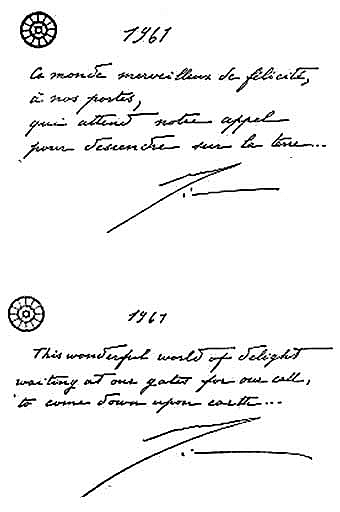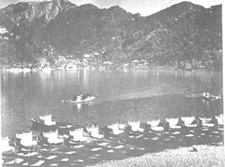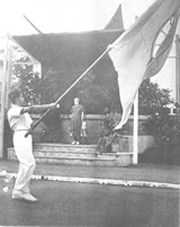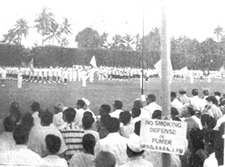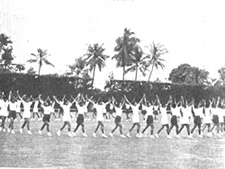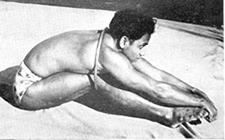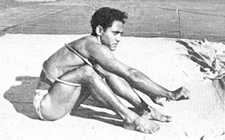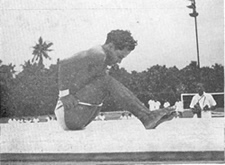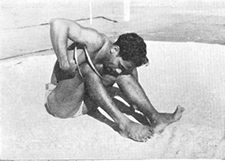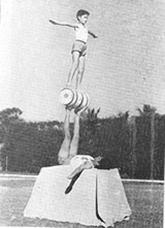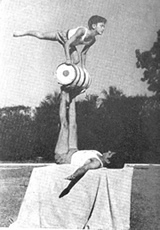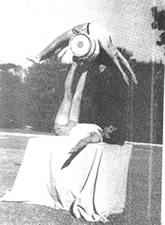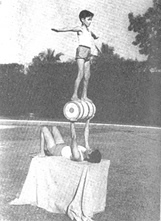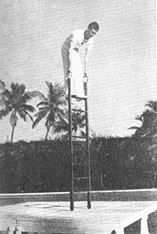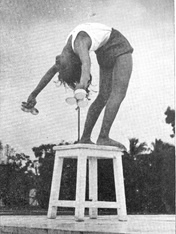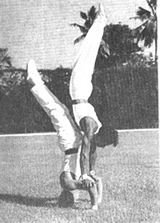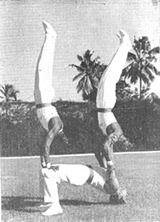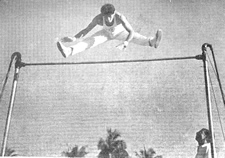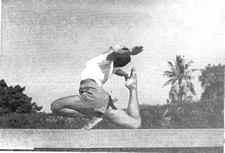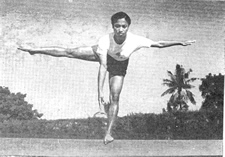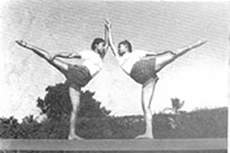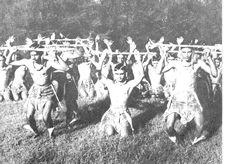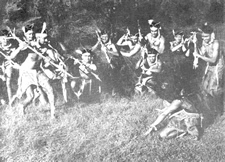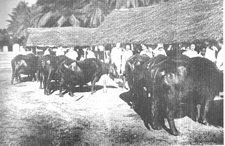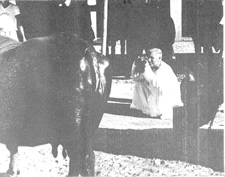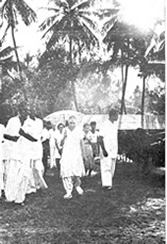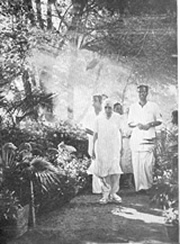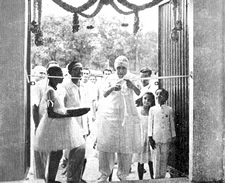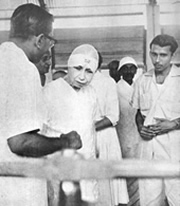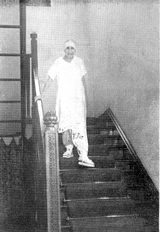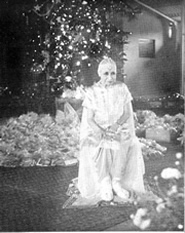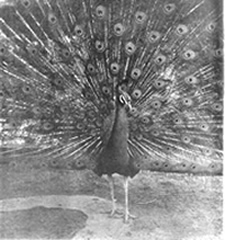|
La Grâce divine a toujours été toute-puissante. Et pourtant, si nous comparons le monde tel qu'il est, au monde plus ou moins idéal tel que nous pouvons le concevoir quand nous sortons de notre conscience d'ignorance et que nous entrons dans une conscience que nous appelons plus divine, comment se fait-il que ce ne soit pas toujours très bien, si la Grâce est toute-puissante? Il semblerait que la vision de ce qui doit être précède de beaucoup l'exécution—et c'est cela qui fait naître tout le problème. On voit en avant ou en haut, la réalisation, peut-être pas du pas suivant, mais enfin celle qui se produira un jour; et alors, comme on la voit, on se dit : "Mais cette conception est plus divine que ce qui est réalisé maintenant; par conséquent, si la Grâce est toute-puissante, ça doit se réaliser instantanément". (Je suis en train de regarder le problème comme il me semble qu'une mentalité humaine se le pose, ou à peu près, pour essayer de me faire comprendre.) Mais qu'est-ce que l'on appelle une Grâce toute-puissante ? Je ne veux pas parier des conceptions d'un esprit ordinaire pour qui la Grâce toute-puissante est celle qui réaliserait instantanément ce qu'il désire ou ce qu'il croit être bon; je ne parle pas de cela, nous éliminons ce cas enfantin. Mais en admettant que quelqu'un ait une vision plus profonde, plus haute, une sorte de perception intérieure d'un monde idéal où toutes sortes de choses, qui sont pour nous très choquantes, disparaîtraient; alors on se trouve vraiment en face d'un problème qui paraît insoluble. Ceci se traduit, pour les mentalités très ordinaires, d'une façon très simpliste et très enfantine : ou bien la Volonté divine est quelque chose qui, pour nous, est impensable (ce qui ne serait pas étonnant !) impensable et presque monstrueuse si elle admet les choses telles qu'elles sont, si elle veut les choses telles qu'elles sont — ou bien la Grâce est impuissante. Je vous préviens, pour vous mettre en garde contre le piège, que c'est le grand argument de l'Adversaire. Il s'en sert pour troubler les esprits et éveiller la révolte; mais enfin, comme piège c'est très bien conçu. |
you to make an effort, because it is salutary. Because it is a kind of conflict in the human consciousness that presents itself constantly, because it is this conflict that serves as the basis of all opposition to the concrete work, because it is due to this conflict that people (I speak even of people who are most -enlightened in this domain) confuse always spiritual life with the annihilation of physical, material creation, because it is for them the only means of escape : "Let us escape from the material reality and we escape from the problem"; for, to be in the state where the problem is no more, one must come out of life—according to them. There is a solution. It will be another time.
Note : After returning to the Ashram when the class was over, Mother made the following remark: I gave the solution this evening, I gave it twice in the class without speaking.
Has this solution any relation with the date 15th August? Is there any relation between the festival of Assumption (in the Catholic Church) and the birthdate of Sri Aurobindo ?
Yes. He has said it also himself. The Assumption of Virgin Mary is the divinisation of Matter. And that is the object of the last Avatar.
|

